Greysheet & CPG® PRICE GUIDE
- U.S. Coins /
- Dimes /
- Roosevelt Dimes (Proof) /
-
2003 Roosevelt Dimes (Proof)
Sort by
Greysheet Catalog Details
San Francisco-minted copper-nickel clad proofs were first released in 1968, and the United States Mint inadvertently provided the hobby with an incredible run of proof Roosevelt dime varieties from the late 1960s through early 1980s missing their "S" mintmarks. The most valuable of these varieties is the 1975 no-S proof Roosevelt dime, which has traded for more than $300,000 and is easily one of the valuable modern United States coins. Other no-S proof Roosevelt dimes are the 1968 no-S, 1970 no-S, and 1983 no-S Roosevelt dimes.
Production of 90% silver proofs resumed in 1992, and the US Mint has since struck its first modern "P" Mint reverse proof Roosevelt dimes and first "W" Mint proof Roosevelt dimes, which were packaged with the 2015 March of Dimes commemorative silver dollar. The 2015-P silver reverse proof Roosevelt dime and 2015-W silver proof Roosevelt dime have not gained in price appreciably since their glory days in 2015 when they were quickly sold out along with the March of Dime silver dollar. While all modern proofs are superior in quality and possess deep cameo devices, all Roosevelt dimes predating the mid 1970s and bearing cameo contrast are worth significantly more than ordinary proofs.
Catalog Detail
Legal Disclaimer
The prices listed in our database are intended to be used as an indication only. Users are strongly encouraged to seek multiple sources of pricing before making a final determination of value. CDN Publishing is not responsible for typographical or database-related errors. Your use of this site indicates full acceptance of these terms.
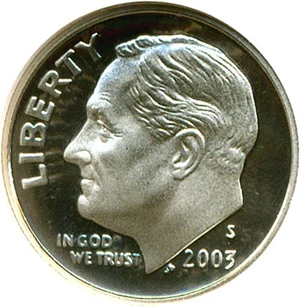
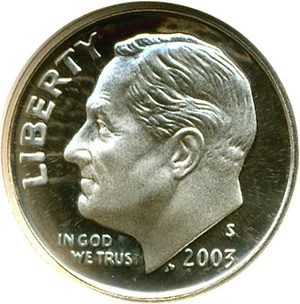
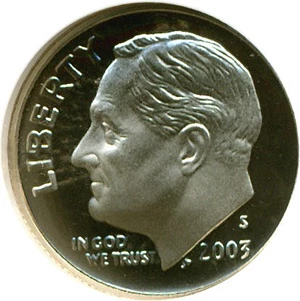
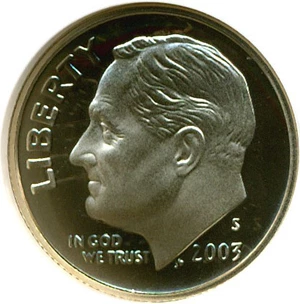

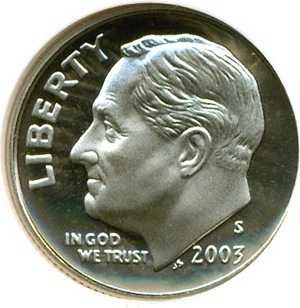
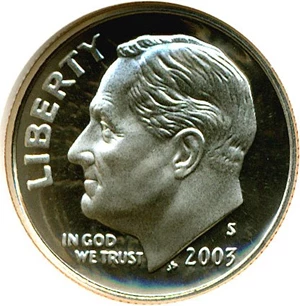
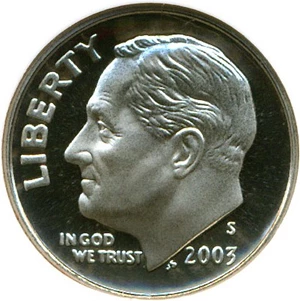
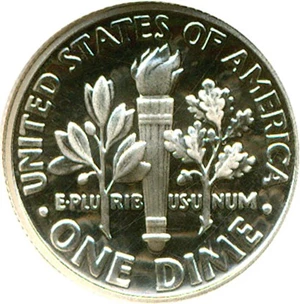
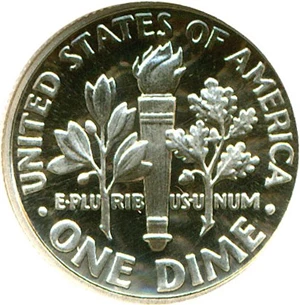
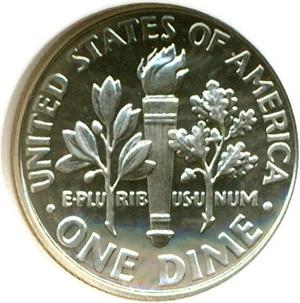
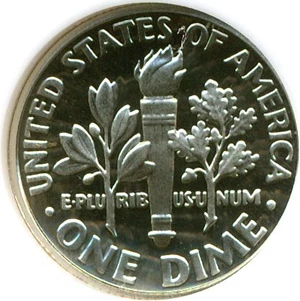
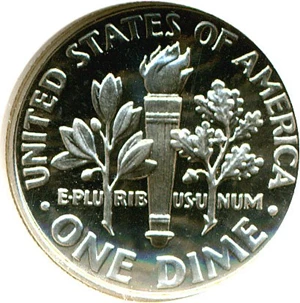
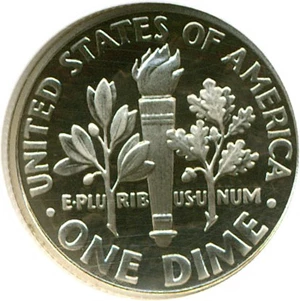
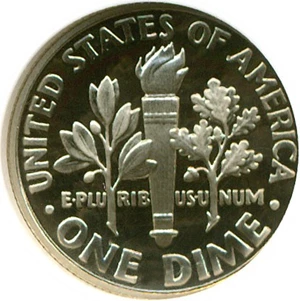
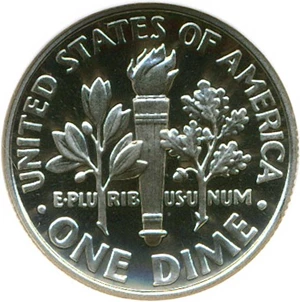
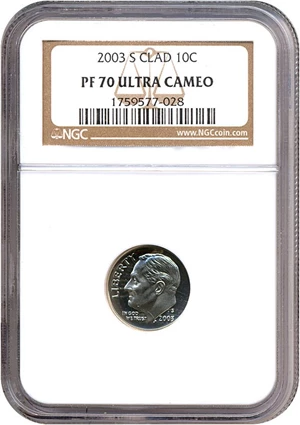
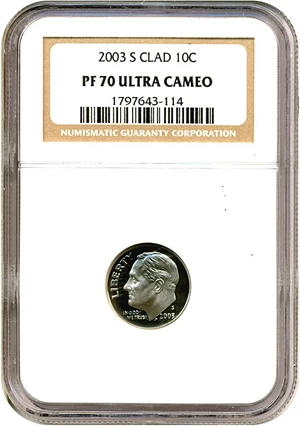
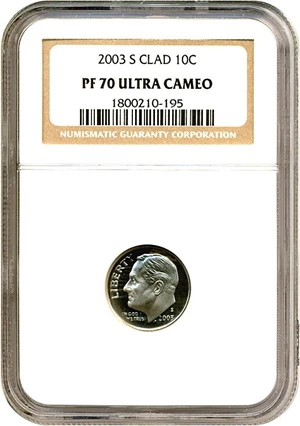
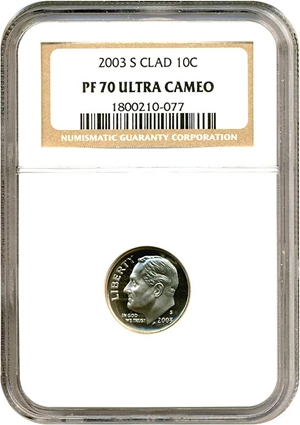
| Roosevelt Dimes (Proof) | Value Range | Favorite | |||
|---|---|---|---|---|---|
| Roosevelt Dimes (Proof) | Value Range | ||||
|
$0.50
-
$13.50
$0.50 - $13.50
|
||||
|
$3.44
-
$18.90
$3.44 - $18.90
|
||||
Greysheet Catalog Details
San Francisco-minted copper-nickel clad proofs were first released in 1968, and the United States Mint inadvertently provided the hobby with an incredible run of proof Roosevelt dime varieties from the late 1960s through early 1980s missing their "S" mintmarks. The most valuable of these varieties is the 1975 no-S proof Roosevelt dime, which has traded for more than $300,000 and is easily one of the valuable modern United States coins. Other no-S proof Roosevelt dimes are the 1968 no-S, 1970 no-S, and 1983 no-S Roosevelt dimes.
Production of 90% silver proofs resumed in 1992, and the US Mint has since struck its first modern "P" Mint reverse proof Roosevelt dimes and first "W" Mint proof Roosevelt dimes, which were packaged with the 2015 March of Dimes commemorative silver dollar. The 2015-P silver reverse proof Roosevelt dime and 2015-W silver proof Roosevelt dime have not gained in price appreciably since their glory days in 2015 when they were quickly sold out along with the March of Dime silver dollar. While all modern proofs are superior in quality and possess deep cameo devices, all Roosevelt dimes predating the mid 1970s and bearing cameo contrast are worth significantly more than ordinary proofs.
Catalog Detail
Legal Disclaimer
The prices listed in our database are intended to be used as an indication only. Users are strongly encouraged to seek multiple sources of pricing before making a final determination of value. CDN Publishing is not responsible for typographical or database-related errors. Your use of this site indicates full acceptance of these terms.



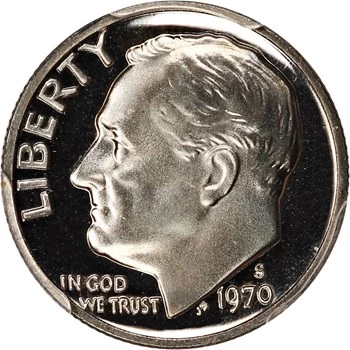





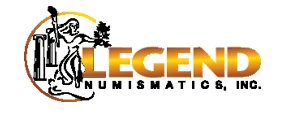
 Loading more ...
Loading more ...